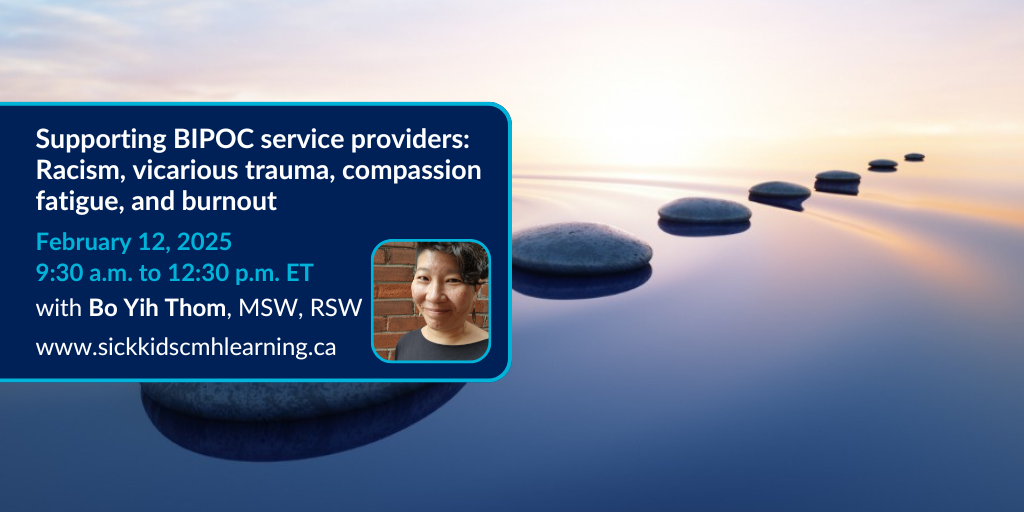Webinar details: February 12, 2025 | 9:30 a.m. to 12:30 p.m. ET
This training is suitable for:
Mental Health Professionals: psychotherapists, counsellors, psychologists, social workers
Medical Professionals: nurses, psychiatrists, family doctors
Direct Service Workers: drop in workers, shelter and hostel workers
Educators: teachers, ECE, school administration, support staff
First Responders: police, firefighters, paramedics
Level of training: Introductory/Intermediate
Client age category: For professionals who work with children, youth, families, and adults of all ages.
Description:
Are you a provider who identifies as Black, Indigenous, or a person of colour? Do you find it challenging to prioritize and practice self-care after working in the field of service and care? Are you feeling disconnected from “yourself”, whether at work or home?
You may be affected by compassion fatigue or vicarious trauma which are common experiences among clinicians, support workers and advocates. For racialized and world-majority workers, these conditions are often compounded by navigating race, racism and other intersections of oppression in workplaces, as well as with systems that affect the clients’ lives.
This training will provide a safe space for BIPOC providers to come together in a safe space to talk about the connection between racism, compassion fatigue, vicarious trauma, and burnout. Practical information is further shared through discussion, self-reflection exercises and group activities. While this training centres the discussion on race, it also strives to be a disability friendly and trans and queer positive space.
Learning objectives:
- Explore the relationship and understand the differences between race, compassion fatigue, vicarious trauma, and burnout
- Recognize possible signs and contributing factors through an intersectional lens
- Identify how our survival parts can be activated at work and how to help ourselves
- Explore resiliency-based strategies and challenges to self-care
